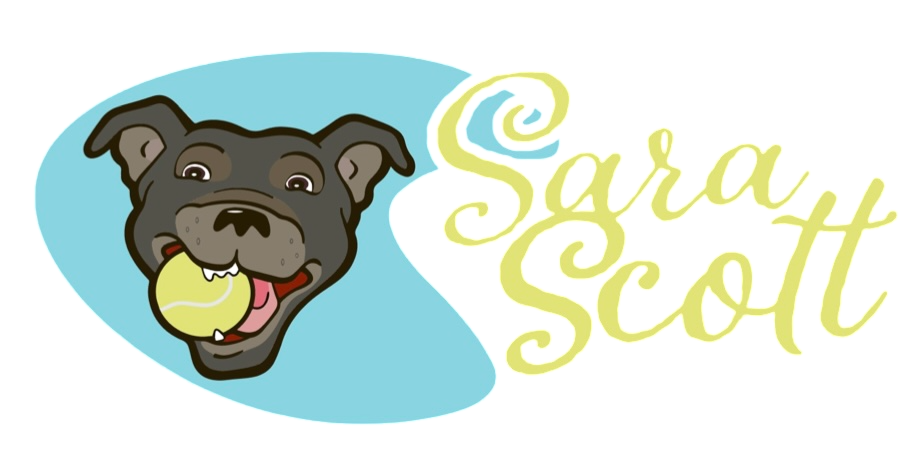Enhancing Your Dog's Behavior: The Unexpected Role of Play
- Sara Scott
- Sep 23, 2024
- 3 min read
When it comes to addressing dog behavior issues, traditional training methods often take center stage. But what if there's an underutilized tool that could make a significant difference? As a professional dog behaviorist, I've discovered that play isn't just for fun—it can be a powerful ally in helping dogs overcome anxiety, reactivity, and even aggression.

Play: More Than Just Fun
While play might seem simple, it can be transformative for dogs facing serious behavioral issues. It's not just about entertainment – play can be a cornerstone in addressing and improving challenging behaviors.
In my 25 years of working with dogs, I've seen firsthand how different types of play can make a significant difference. But not all play is created equal, and the type of play you choose can have varying impacts depending on your dog's specific needs.
Four Key Types of Play
In my recent newsletter, I explore four types of play that can be particularly beneficial for dogs with behavior challenges:
Food Play
Toy Play
Personal Play
Scent Work
Each of these play types offers unique benefits and can be tailored to your dog's individual needs and comfort level. From building engagement to calming the nervous system, the right type of play can be a game-changer in your dog's behavior modification journey.
The Science Behind Play
What makes play so effective? It's not just about burning energy. The right kind of play can actually influence your dog's physiology and psychology in positive ways. For instance, certain play activities can lower your dog's heart rate, even during physical exertion. Others can boost feel-good hormones in both you and your dog, strengthening your bond and building trust.
These biological responses can have a profound impact on dogs struggling with fear, anxiety, or aggression. By incorporating the right types of play into your routine, you're not just having fun – you're actively supporting your dog's emotional regulation and resilience.
Integrating Play with Training
It's important to note that play isn't a replacement for structured training or professional help when dealing with serious behavior issues. Instead, think of it as a complementary tool that can enhance your current efforts. The key is knowing how to use play effectively and safely, especially with dogs that may be reactive or anxious.
A Peek Into the Benefits
While each type of play has its own specific advantages, here are a few general benefits you might see:
Increased confidence in fearful dogs
Improved focus and impulse control
Stronger relationship between you and your dog
Reduced stress and anxiety
Better ability to cope with triggers
Of course, the exact benefits can vary depending on the type of play and your individual dog's needs.
Ready to Learn More?
If you're intrigued by the potential of play to help your dog with anxiety, reactivity, or aggression, there's so much more to explore. In my full newsletter, I dive deep into each type of play, offering specific examples, safety tips, and guidance on how to introduce these activities to your dog.
You'll learn:
How to use food play to build engagement with distracted or anxious dogs
The dos and don'ts of toy play for reactive dogs
Why personal play can be a powerful bonding tool
How scent work can help calm an overstimulated dog
Click here to read the full newsletter and discover how you can harness the power of play to support your dog's behavior modification journey.
Remember, addressing behavior issues is a process, and every tool in your toolkit matters. Play might just be the missing piece you've been looking for to help your dog thrive. Don't miss out on this opportunity to learn a fun, effective way to support your dog's emotional wellbeing.
Don't miss out on more game-changing insights like these! Sign up for my email newsletter and be the first to receive cutting-edge strategies I've developed to help your dog overcome behavioral challenges. Each month, I dive deep into topics that matter to you and your dog, sharing my latest discoveries in training techniques and the most recent research in canine behavior.
Ready to transform your relationship with your dog? Click here to sign up.

Comments